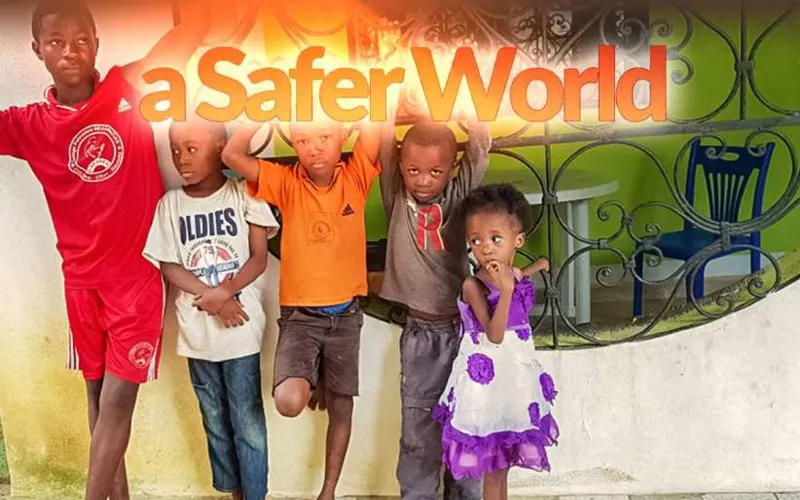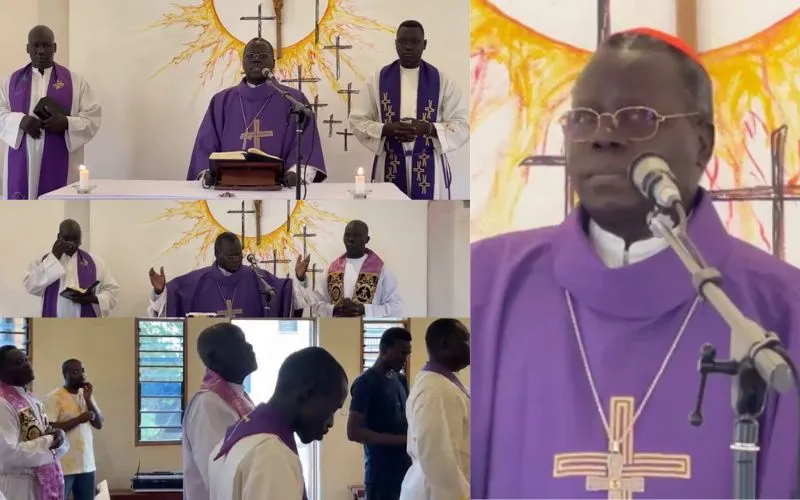Meanwhile, in the East African nation of Kenya, two Catholic Nuns who are beneficiaries of ASEC’s Higher Education for Sisters in Africa (HESA) program are on the frontline safeguarding at-risk boys and girls.
Thanks to the skills gained from the program that provides African Sisters access to undergraduate and Master’s level education, Sr. Anne Kamene Musyoka, a member of the Assumption Sister of Nairobi (ASN), has been able to “protect some of Kenya’s most vulnerable girls.”
Soon after graduating from the Kenya-based Catholic University of Eastern Africa (CUEA) with a Bachelor of Arts in Development Studies in May 2016, Sr. Kamene was appointed the Director of Cheshire Home for Girls in Kenya’s Archdiocese of Nairobi.
The home “provides a residential and training program for girls with varying mental and physical disabilities” with about 90 percent of them having experienced sexual abuse, officials of the 22-year-old Catholic education initiative say.
Through collaboration with a group identified as Youth Changes Kenya, the Kenyan-born nun has been able to foster a working relationship with a Child Protection Officer.
(Story continues below)
The collaboration has also enabled her to connect with lawyers as needed and volunteers who teach the girls about self-defense and how to deal with the trauma as a result of sexual violence.
“Sr. Anne (Kamene) also recognized the need for mental health services for the girls but knew the home could not afford to hire one. So, she reached out to a local university and they now send a team of five counselors to the home regularly,” ASEC officials say in the April 5 report.
The potential the ASN member sees in the vulnerable girls is similar to that, which Sr. Felistas Chematia Chesire, a member of the Congregation of the Assumption Sisters of Eldoret (ASE), sees in vulnerable boys in the East African nation.
An alumna of both SLDI and HESA, Sr. Feslistas “combs the streets of Nairobi to help poor, orphaned and homeless boys” who she builds trust with “in the hope of breaking the cycle of poverty and drug addiction,” the leadership of the Pennsylvania-based Catholic entity reports.
As the Administrator of Kwetu Home of Peace Rehabilitation Centre for Street Children, Sr. Felistas offers the 250 boys “protection and solace they may have never experienced through substance abuse treatment and educational opportunities.”
Skills gained from the two ASEC programs have enabled the Kenya-based Nun to seek donations from corporates and well-wishers to support the running of the home, officials of the entity that has served an estimated 5,300 Sisters in Africa report.
Sr. Felistas has also started income-generating projects at the home such as a health dispensary and a farm, greenhouse and fishpond that encourage sustainability, and agribusiness, they add.
On her part, Sr. Delvin Mukwana, another HESA alumna, has, in her position as the head of the Catholic Care for Children in Kenya (CCCK) program of the Association of Sisterhoods of Kenya (AOSK), strived to promote child protection.
The member of the Daughters of the Heart of Mary (DHM) used her skills in Development Studies and Project Planning and Management to spearhead the development of a child protection policy “to inhibit abuse and ensure that members of AOSK foster a safe environment for children.”
The policy was launched on 6 July 2019 in an event that was graced by the Apostolic Nuncio in Kenya and South Sudan, Archbishop Bert van Megen, ASEC officials have reported.
Other ASEC beneficiaries featured in the report include three Catholic Nuns who are using their HESA and SLDI skills to protect orphans in various African countries.
Among them is Sr. Cecilia Nakambo, a member of the Little Sisters of St. Francis (LSSF) in Zambia who has launched a national project that provides and promotes the long-term safety and wellbeing of orphaned children and their families in the Southern African nation.
“The grants she secured using her education have allowed the project to develop Zambia's orphanages, bolster their quality of care and prevent family separations,” ASEC officials have reported, adding, “The project also provides psychosocial services to children and their families.”
In Tanzania, Sr. Efrosina Mbiki, a member of the Sisters of the Immaculate Heart of Mary (CICM) “has found her true vocation caring for orphaned children” through The Mgolole Orphanage, which is run by her community, the leadership of ASEC says.
Located in Tanzania’s Catholic Diocese of Morogoro, the orphanage “is one of the oldest centers in the city and is known locally as a center of hope, love and tranquility for orphaned children,” ASEC officials say in their April 5 report.
“Sr. Efrosina assists in healing and rescuing the lives of the over 100 orphans living with the Nuns at Mgolole; from infants all the way to secondary school,” officials of the Catholic entity established in 1999 by four Catholic universities in the U.S. and their respective Religious Orders say.
In Kenya’s Archdiocese of Nairobi, another ASEC beneficiary, Sr. Margaret Nthenya Kaleli, a Sister of St. Joseph Benedict Cottolengo (SSJBC) has dedicated herself to serving the orphaned children at Cottolengo Centre for Orphaned HIV Positive Children on and off since 1995.
“With proper nutrition and health care, the condition of many of the infants improved,” she has been quoted as saying in the report, adding that about 85 percent of the infant orphans “create their own immunity to HIV and turn zero-negative.”
In the April 5 report, ASEC officials appeal to well-wishers to support the entity through donations so that they may be able to equip more Africa’s Catholic Nuns with skills that will enable them to facilitate the safeguarding of vulnerable children on the world’s second largest continent.








